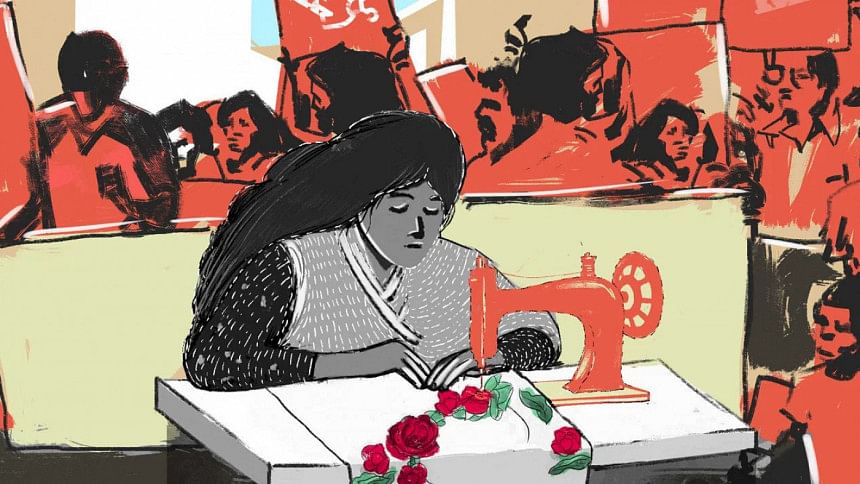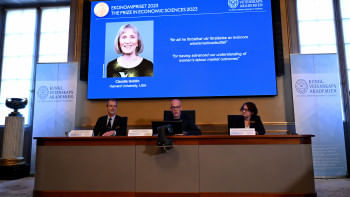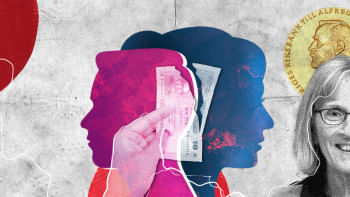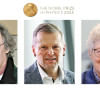Claudia Goldin’s economics Nobel and the lessons for developing countries

Many social scientists across the globe have asked, "Why do women get paid less than men?" For decades, the standard answer to this question has been to single out bias, discrimination, and biological differences. However, Claudia Goldin, this year's Nobel Prize winner in Economics, wanted to look beyond these factors. Her findings on why women earn less and how this has been gradually evolving over the last century, brought about a quiet revolution in economic thinking and the realm of policymaking. She hypothesised that women are typically penalised by the existence of many "greedy jobs"—which are demanding jobs for which the hourly wage increases with the number or type of hours worked (evenings, weekends, holidays)—mainly because they (women) are expected to handle the bulk of domestic duties.
The Nobel Committee's announcement credits Goldin, an economic historian and labour economist, for giving us a new perspective on the age-old problem of women's underrepresentation in the labour market and "for having advanced our understanding of women's labour market outcomes." Claudia Goldin "provided the first comprehensive account of women's earnings and labour market participation through the centuries. Her research reveals the causes of change, as well as the main sources of the remaining gender gap," it declared.
Goldin, a Professor of Economics at Harvard University, became the first tenured woman in the department in 1990. She is only the third woman to receive the Nobel in Economics and the first woman to win the award solo. She was the Director of the Development of the American Economy Program at the prestigious National Bureau of Economic Research (NBER) from 1987 to 2017.
Her most recent research paper, "Why Women Won," published by NBER discusses the role of women's rights legislation and pays tribute to the relentless work of women's rights associations. Accolades for Goldin have been pouring in from across the globe. Paul Krugman, who won the Nobel in 2008, offered the highest tribute applauding Goldin's "path-breaking research." He went on to add, in his The New York Times column, "The Nobel announcement sold Goldin a bit short by failing to note her hugely important contributions beyond the issue of women's work. In particular, it didn't mention her work on inequality more broadly, notably her role in documenting the sudden and drastic decline in inequality that took place in the 1940s."
Goldin's research spans many areas, including the economic history of women and education, the gender gap in earnings, income inequality, technological change, education, and immigration. In 2013-14, she was the president of the American Economic Association and made the increase of women as undergraduate majors one of her goals. Her recent work concerns the increased employment of older women.
In her latest book, Career and Family: Women's Century-Long Journey toward Equity, Goldin was eloquent. "The converging roles of men and women are among the grandest advances in society and the economy in the last century." Then she asks, what does society need to do to ensure that there is equality in the labour market? And she provides an answer. "The solution does not (necessarily) have to involve government intervention and it need not make men more responsible in the home (although that wouldn't hurt). But it must involve changes in the labor market, especially how jobs are structured and remunerated to enhance temporal flexibility."
What is the policy implication to diminish the last remnants of the gender gap? In this book, she shows that the gender gap in pay would be considerably reduced if companies did not reward employees who work long hours and particular hours when they are needed at home during dinner time, for child care, and for other family responsibilities. But, some women with children find the inflexibility of the work insurmountable.
So, what is to be done? Goldin found that there are many professions with flexible hours where men and women can perform the job equally well. For example, as pharmacists or programmers. In industries which include technology, science, and health, professionals of either gender can substitute for one another.
In a review of Goldin's book, Prof Barry Eichengreen of the University of Berkeley, points out that for much of the twentieth century, the pay gap between women and men reflected discrimination, the consequences of marriage, differences in educational attainment, and occupational choices. "Today, by contrast, those obstacles to gender parity have been reduced, and the pay gap reflects other causes, including how childbirth and child rearing interrupt female labor-force participation. More important, it reflects how women tend to choose employers and career paths that allow for flexibility and do not require overtime hours and erratic work schedules," Eichengreen concludes.
To reduce the gap in "couple equity"—where a working man has a higher pay than a working mother in the same family—Goldin suggests that firms could make flexible and part-time work more productive and better remunerated and governments to provide more generous childcare. More fundamentally, "redressing the pay gap will require revisiting the social norm that women are primarily responsible for child rearing".
Another area of research by Goldin, which has considerable relevance for Bangladesh, is in the economic history of fraud and corruption in the US. In Corruption and Reform, which she co-edited with Edward L Glaeser, contributors address the measurement and consequences of fraud and corruption and the forces that ultimately led to their decline. They show that various approaches to reducing corruption have succeeded, such as deregulation as well as an independent press, which kept a watchful eye over government and business.
"Understanding women's role in the labour market is important for society. Thanks to Claudia Goldin's groundbreaking research we now know much more about the underlying factors and which barriers may need to be addressed in the future," says Jakob Svensson, Chair of the Committee for the Prize in Economic Sciences.
A fundamental takeaway of Goldin's work is that the source of the gender gap is not constant as a society transitions from one period of development to another. Rather, her work highlights which factors are most relevant at various stages of economic development and, importantly, how multiple sources of gender gaps often interact with each other. For instance, policies aimed at improving female educational attainment—an ambition of many developing countries today—will not be effective at closing labour market gender gaps if social norms or institutional barriers keep women out of the workplace and certain jobs.
Finally, the background paper prepared by the Nobel Committee summarised her role best. "Goldin's masterful account of the economic history of women has provided novel facts about the many dimensions of the gender differences in the labor market, and uncovered both the driving forces of these gaps over time and the gaps that remain today."
Dr Abdullah Shibli is an economist and works for Change Healthcare, Inc, an information technology company. He also serves as senior research fellow at the US-based International Sustainable Development Institute (ISDI).
Views expressed in this article are the author's own.
Follow The Daily Star Opinion on Facebook for the latest opinions, commentaries and analyses by experts and professionals. To contribute your article or letter to The Daily Star Opinion, see our guidelines for submission.

 For all latest news, follow The Daily Star's Google News channel.
For all latest news, follow The Daily Star's Google News channel. 











Comments